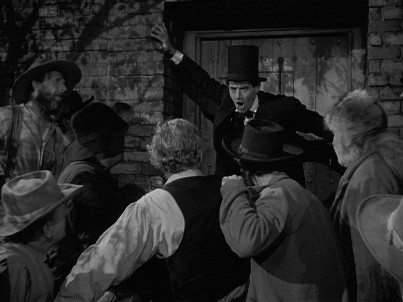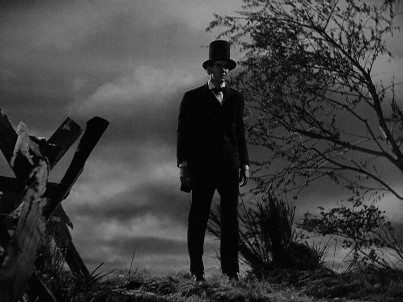Category: Cinema
Reviews of movies Adam has seen or films he has worked on.
A part of this viewing list: Criterion Collection Spine #320: John Ford’s Young Mr. Lincoln.

Young Mr. Lincoln is a film by John Ford, starring Henry Fonda, about Abraham Lincoln when he was just a greenhorn lawyer in Springfield, Illinois. The Geoffrey O’Brien essay linked at the end of this review is so well done that I insist you read it, if I can make you care about the movie itself. The Criterion liner notes also contain an essay from Sergei Eisenstein about the film, entitled “Mr. Lincoln by Mr. Ford”. If you can scrounge up a copy, that too is worth a read.
The film itself is Ford to a T; with an obvious bond between man and land, a sense of American masculinity that would continue to pervade his later films, and simple but deft camera work. Fonda plays an impressive Lincoln, actually managing to look like him at times. It appears that they cast many shorter statured folks to make Fonda’s height seem unnatural, and I think Fonda wore a suit just a little too small for him as well.
The portrait we get of Lincoln seems out of place, if we’re only used to seeing him in state and famous. Watching that famous stovepipe hat ride down a country road on a mule becomes a strange site, even though Lincoln’s down-home roots are an essential part of his mystique. So the power of Young Mr. Lincoln derives from the fact that we’re seeing a side of the man that has always been assumed but never really examined. The inimations of impending discontent are present, and ring even stronger since we know what is in store for Lincoln, though he does not. Throughout, the non-diegetic music hints at The Battle Hymn of the Republic and Lincoln himself is seen playing “Dixie” on his Jew’s Harp.
Diaspora is also a strong theme in the film. From Lincoln’s explanation that the Jew’s Harp came down and spread from King David’s harp, from the slow Conestoga roads of pioneers passing through Illinois, and most importantly from Lincoln’s own journey, displaced from Kentucky by cheaper slave labor, through Indiana and then from New Salem to Springfield, there is an obvious path and journey taking place, and this leg is Lincoln’s. Thankfully he’s got long ones.
His rivalry with Stephen Douglas is already present, but not as public, his honesty and self-deprecation are already well-honed, but his employment of these skills is sometimes inspired and at other times confusing. Lincoln’s humility and patience and especially his willingness to take a swing at whatever is presented to him are the traits we end up admiring most. Even if this story is more apocryphal than factual it still serves an important purpose by making us think about how where we’ve come from can help us get to where we’re going.

• Criterion Essay by Geoffrey O’Brien
• Senses of Cinema article on John Ford
• The Abraham Lincoln Papers at the Library of Congress